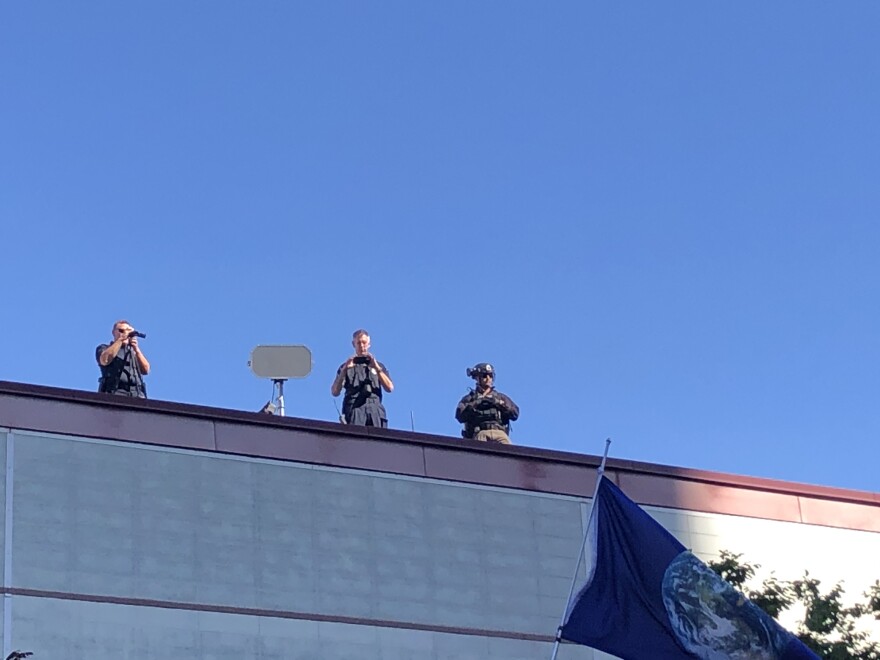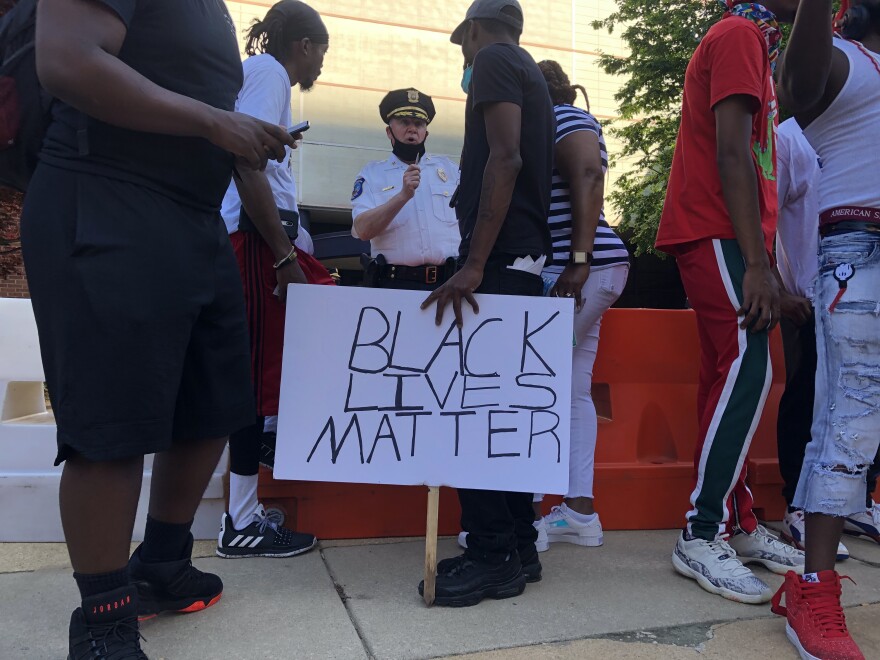Police in Philadelphia have used tear gas and rubber bullets on protesters — and made mass arrests. But police responses to protests in Delaware so far have been comparatively restrained.
The protests that turned destructive in Wilmington and Dover this past weekend seem to have resulted in only a handful of arrests so far.
Wilmington Police Department says it made four arrests early Sunday morning — for resisting arrest, burglary, shoplifting and criminal mischief— and has active investigations ongoing. Dover police arrested three people in connection with the protests and looting there. A spokesperson for Delaware State Police declined to answer whether that force made any arrests.
Delaware Attorney General Kathy Jennings says it is important for law enforcement to protect the First Amendment right of protesters. “I think the police, with the leadership in Wilmington of Chief [Robert] Tracy, did an outstanding job of exercising restraint."Jennings says Tracy instructed Wilmington police to avoid arrests unless someone was in danger. She says Dover and state police appear to have followed a similar policy.

“It’s not a time to really even be proportionate,” she said. “This is a time to be restrained, and to be respectful. And to open our hearts.”
Keith James, Jr., candidate for State Representative and self-described community advocate, participated in the Wilmington protests.

“The Wilmington Police Department conducted themselves very well both nights,” he said. “Were there ways that they could potentially be better? I’m sure. Whether it’s the policing strategy or community engagement, whether it’s planning ahead or blocking off traffic for us, whatever — they didn’t do that the whole time.”
James notes at one point protesters were able to negotiate with police to put away their rifles in exchange for leaving I-95. Protesters asked officers whether they approved of what happened to George Floyd, who died at the hands of a Minnesota police officer, or whether they would stop if someone in their custody said they couldn’t breathe.
“The fact that we were able to ask them our questions without them just standing there holding their guns and not answering us … giving us human answers— it made it very easy to leave peacefully,” he said.

Dana Case is a member of Food Not Bombs Wilmington, which she says helped provide food and water at the protest early Saturday. Case, who is white, says Wilmington police conducted themselves with restraint.
“It seemed to me that the police were mostly just trying to stand back and not incite anything further,” she said. “But their presence with the shields and the armored vehicle seemed somewhat threatening.”
“I was glad to see we weren’t met with the same kind of brutality we’ve been seeing in other cities,” she added.
David Karas, spokesperson for the Wilmington Police Department, declined to comment on the department’s strategy during the protests. He also declined to grant an interview with Chief of Police Robert Tracy.











